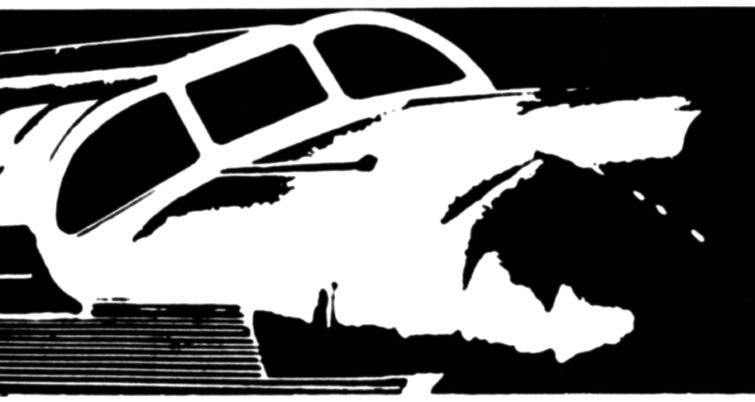From the Dome: Give ’em a Break
Written by David C. Lester, Editor-in-Chief
Overnight accommodations for track gangs should not include bed bugs.
Business travel can be fun, or it can be miserable. And take it from me, after 12 straight years of traveling for consulting work every week (fly out Monday morning, fly home Thursday, and back out again on Monday morning), business travel can be stressful, especially if one must visit more than one location during the week. Things are much easier if you have smooth trips to and from, decent food, and a proper place to stay. Remember, too, that after enduring all the travel logistics, you must still focus on job expectations at a client or work site. That’s what the client cares about, and they rarely, if ever, think about your travel experiences. Fortunately, except for one or two occasions, I never had to put up with sub-standard accommodations.
The New York Times reported in a story written by Peter S. Goodman in late October that focused on the pending rail strike that conditions on the road for railroad track gangs are often horrible. Goodman wrote, “The men were part of a traveling maintenance gang, a largely unseen force that plays a crucial role in keeping rail freight rolling. They had driven from 5 to 13 hours to [reach the work site in Texas], from homes as far away as Louisiana, Mississippi, and Oklahoma.”
Goodman wrote, “They were accustomed to the gnawing regrets of life on the road, regularly missing wedding anniversaries, children’s birthday parties, and even the deaths of parents.” To this point, Goodman discussed aspects of railroad maintenance gang life on the road, which workers learn about when they hire on. It’s a difficult life, but the pay and benefits are pretty good, and most workers are hard-working, team-oriented individuals. However, the next part of Goodman’s article was surprising even to me – “[The workers] were used to cramming in hotel rooms infested with bedbugs and rodents, working through bone-cold blizzards and punishing summer heat.”
This article focused primarily on the sick leave debate between the unions and the railroads, but that’s not the point of my editorial. Nor is the challenge of working through “bone-cold blizzards and punishing summer heat.” Those things impact most railroaders in the field – that’s “just” part of working for the railroad or any profession that requires field work year-round. The part that infuriated me was Goodman’s statement about “cramming into hotel rooms infested with bedbugs and rodents.” Bedbugs and rodents? Really? I’m sorry, but that’s beyond the pale. No one should have to endure those conditions.
After reading this article, I turned to some friends working in the field in various jobs on Class I railroads, who corroborated this story. While this doesn’t occur at every hotel, having it happen at all is unacceptable. I know that railroads, like all companies, must keep costs down. However, it seems possible for carriers to negotiate rates with decent hotel chains where guests will have clean rooms free of insects and critters. With the number of guests these hotels would see from the railroad, I expect them to offer very reasonable rates.
What if a relatively inexpensive but decent hotel is not in the area where rail work is taking place, and only fleabag hotels are available? Then the railroads should tell these establishments to clean up their acts, offer clean rooms, and be subject to regular inspection by rail supervisors to ensure continuous cleanliness. After all, depending on the length of the projects, these establishments are likely getting more revenue from the railroad than from any other customer.
If the sub-standard hotels didn’t cooperate, the next option would be to bus workers to the nearest town with a good or cooperative hotel. And, if that’s too far away, it seems reasonable to ask the carriers to refurbish some rail cars to provide clean overnight places. If decent food isn’t nearby, install a small kitchen to enable the crews to be adequately fed.
This magazine provides news and insight into the latest maintenance-of-way methods and equipment. Many do not require track gangs in the field. Many do. We write frequently, and the industry stresses how well-maintained physical plants are critical to keeping trains running smoothly and on time. Those responsible for performing this challenging work and any human being deserve to comfortably rest after a hard day on the line without worrying about bug infestations or greeting rodents if they get up at night to go to the bathroom.
Traditionally, railroad leaders have come up through the ranks and likely spent at least some time working in the field as part of training or a first assignment. So, they must be aware that these problematic conditions exist. Do they think that “well, I had to endure some rough conditions, so today’s field personnel should be able to as well?” I hope that’s not the case.
Regardless of how many years of service a field railroader has, they should expect good conditions in hotels on the road. However, whether it’s appropriate or not, we see those who are younger and now entering the workforce as part of a cultural change regarding work/life balance and willingness to tolerate onerous conditions in the workplace. There are no signs that this cultural change will reverse at some point, and it’s likely to become more pronounced in the next several years.
As we all know, railroading is a tough job. Although worker shortages have gotten a little better, they are still an issue with most carriers, both freight, and passenger. Railroaders in the field sign up for a different type of work than those who work in an office or at headquarters. However, those at headquarters having access to specialized cafes and fitness classes is not right when you have workers in the field dealing with bedbugs and rodents. And I imagine today’s railroad executive does not stay in hotels where they expect rodents as roommates.





